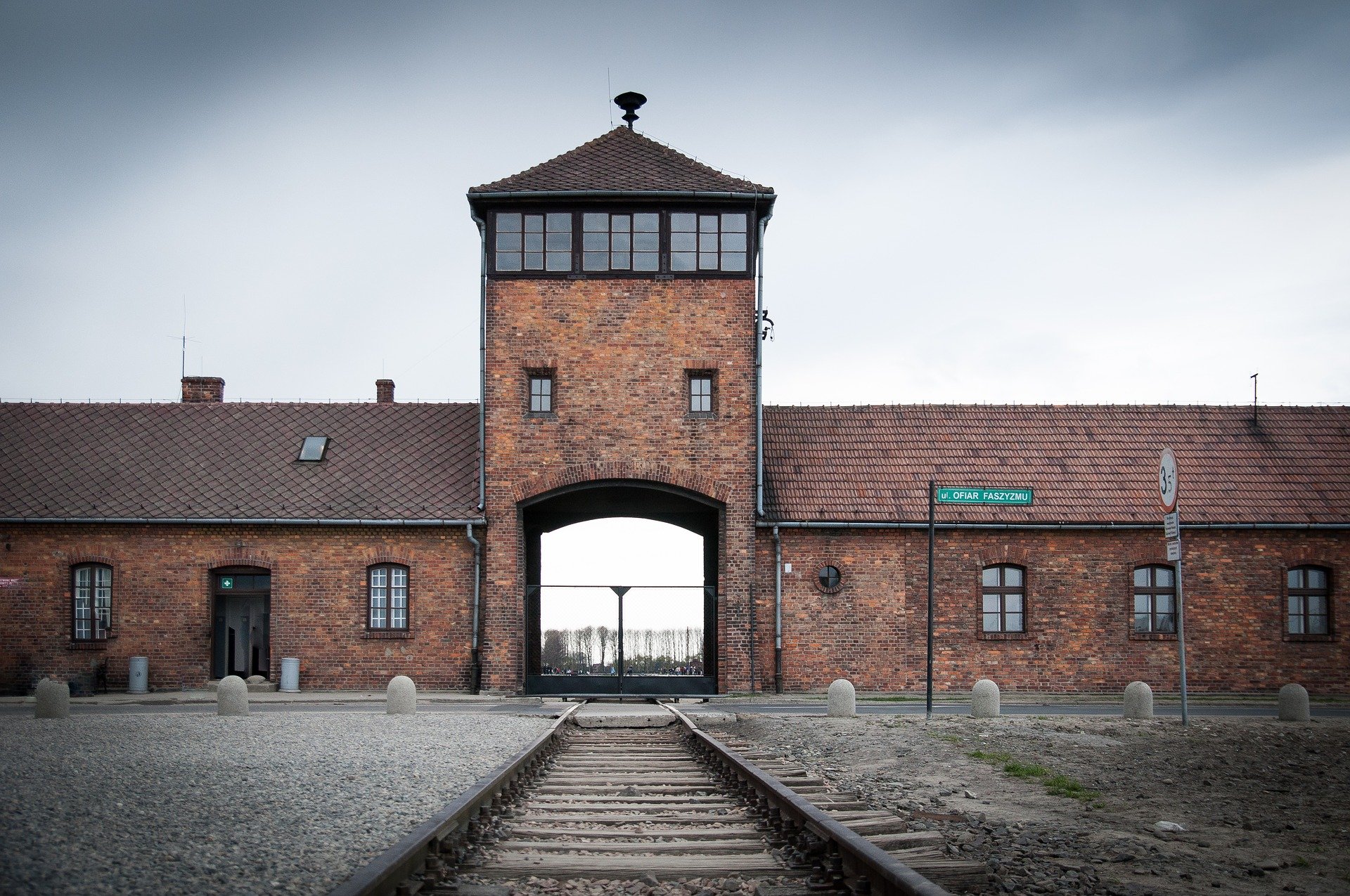GENEVA (23 January 2020) – States must take urgent and effective steps to monitor antisemitic incidents, ensure accountability for perpetrators of violence, and protect Jewish individuals, communities and sites as part of their effort to combat antisemitism, said UN human rights experts*. In a statement marking the International Holocaust Remembrance Day on 27 January 2020, they expressed concerns about the dramatic – and often unchecked – increase in antisemitic rhetoric and violence around the world, and online. Their full statement is as follows:
“With profound sadness and outrage, we, as United Nations human rights experts, mark 75 years since the liberation of the notorious Nazi death camp, Auschwitz, with alarm. On this solemn commemoration, designated as International Holocaust Remembrance Day, States around the world are failing to sufficiently counter antisemitic violence, discrimination, and hostility within their societies or to ensure that their populations are appropriately educated about the Holocaust.
“Driven by recognition of the need to repudiate the ‘disregard and contempt for human rights’ that occurred during the Holocaust, ‘We the peoples’ demanded and the young United Nations itself proclaimed the Universal Declaration of Human Rights in 1948. Since then, all Member States have committed themselves to ensure that all members of society are able to enjoy their human rights, including by protecting members of minority communities against hate crimes and discrimination.
“The legal framework affirming and protecting the human rights of all is a key legacy of the Holocaust’s victims — including the 6 million Jews who, alongside members of other targeted groups, were murdered in a uniquely brutal, systematic and state-sanctioned campaign of antisemitic dehumanization and persecution.
“Toulouse, Pittsburg, Brussels, Poway and Jersey City are just some of the places where Jews have been murdered in recent years. The reports of the Special Rapporteur on freedom of religion or belief and the Special Rapporteur on contemporary forms of racism presented to the UN General Assembly last year outline the dramatic and persistent increase in antisemitic rhetoric and incidents that has been reported in many countries, and online. We urge all concerned persons, all leaders to read them, study them and implement their recommendations as a matter of urgency.
“We are also alarmed at reports documenting extensive Holocaust denial, particularly online, as well as surveys reflecting that significant proportions of the population are ignorant of key facts about the Holocaust, or even unaware that it occurred at all. We are deep concerned by the misuse of social media to spread Holocaust denial and perpetuate antisemitic stereotypes and prejudice.
“Around the world, violence, discrimination and expressions of hostility motivated by antisemitism have created a climate of fear among a substantial number of Jews, impairing their ability to enjoy their fundamental rights to liberty and security, equality and non-discrimination, and to freedom of religion.
“We call on all States to respond to these trends by taking urgent action to uphold their human rights obligations, including by more effectively monitoring and recording antisemitic incidents; ensuring accountability for perpetrators of violence; and providing effective protection to Jewish individuals, communities and sites. We call on states to respond more effectively to incitement to discrimination, hostility and violence against Jews and members of other targeted groups.
“States must also ensure that effective education, training and awareness-raising to combat antisemitic stereotypes and prejudices is being undertaken at all levels of society. Educational programs – for students, teachers, government officials, law enforcement, and others – must identify antisemitism in all its various forms. Educational programs should also include accurate, substantive information about the Holocaust. The United Nations Educational, Scientific and Cultural Organization (UNESCO) and the OSCE Office for Democratic Institutions and Human Rights have produced guidelines for teacher training on addressing antisemitism in schools. These can serve as valuable resources as have the Holocaust and the United Nations Outreach Program and the International Holocaust Remembrance Alliance.
“Among the most important lessons of the Holocaust is that antisemitism, fueled by political leaders and left unchecked, threatens not only Jews, but also other minority and vulnerable communities, and indeed the very foundations of democratic societies. Now, 75 years after the liberation of Auschwitz, we mourn the victims of the Holocaust and solemnly call on States to redouble their commitment to fight this unacceptable yet recurring threat.”
*The UN experts: Mr. Ahmed Shaheed, Special Rapporteur on freedom of religion or belief; Mr. Fernand de Varennes, Special Rapporteur on minority issues; Mr. David Kaye, Special Rapporteur on the promotion and protection of the right to freedom of opinion and expression; Ms E. Tendayi Achiume, Special Rapporteur on contemporary forms of racism, racial discrimination, xenophobia and related intolerance; Mr. Clement Nyaletsossi Voule, Special Rapporteur on the right to peaceful assembly and association; Ms Fionnuala Ní Aoláin, Special Rapporteur on the promotion and protection of human rights and fundamental freedoms while countering terrorism; Ms Agnes Callamard, Special Rapporteur on extrajudicial, summary or arbitrary executions; Ms Koumbou Boly-Barry, Special Rapporteur on the right to education and Ms Karima Bennoune, Special Rapporteur in the field of cultural rights.
The Special Rapporteurs are part of what is known as the Special Procedures of the Human Rights Council. Special Procedures, the largest body of independent experts in the UN Human Rights system, is the general name of the Council’s independent fact-finding and monitoring mechanisms. Special Procedures mandate-holders are independent human rights experts appointed by the Human Rights Council to address either specific country situations or thematic issues in all parts of the world. They are not UN staff and are independent from any government or organization. They serve in their individual capacity and do not receive a salary for their work.

